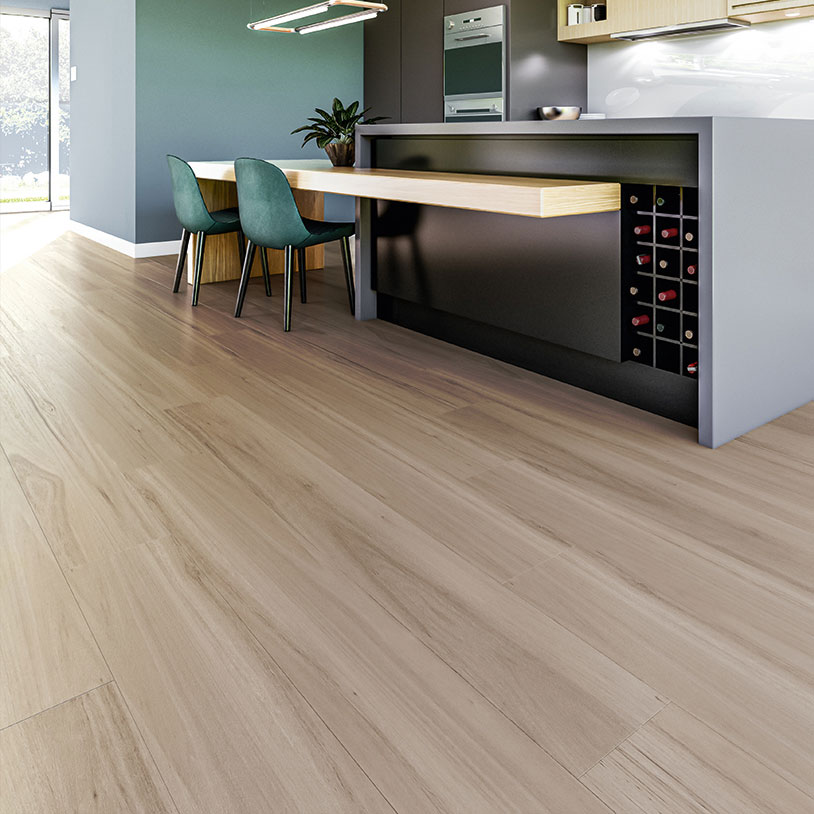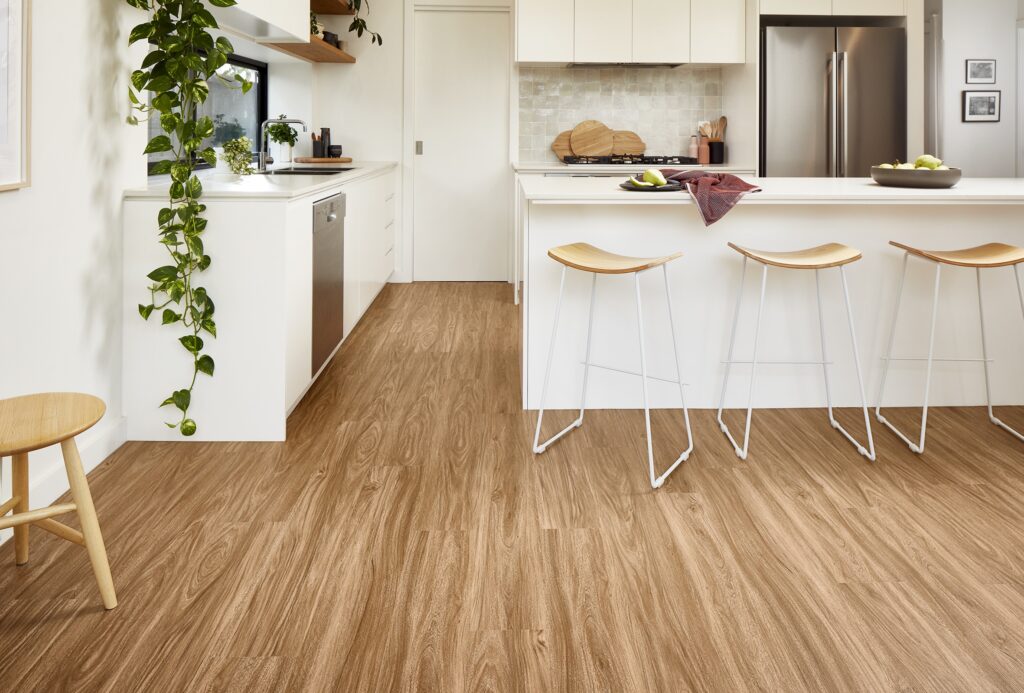The flooring of a home is an integral part of any remodel or renovation. With so many options available today, it is helpful to have an understanding of the various choices and their associated advantages and disadvantages. The hybrid flooring brisbane provides a new, extremely versatile, and increasingly popular option that is worth considering. It is a combination of laminate and vinyl, two of the most durable and cost-effective flooring solutions on the market. While hybrid flooring is a great option for any home, it is important to be aware of the pros and cons associated with the product before making a decision. In this blog, we will discuss the various benefits and drawbacks of hybrid flooring so that you can make an informed choice that fits your unique needs.
1. Durabilty

source: pinterest.com
One of the best benefits of hybrid flooring is its durability. As a combination of vinyl and laminate, hybrid flooring is extremely hard-wearing and can withstand heavy foot traffic, scratches, spills and scuffs. As a result, hybrid flooring is a great choice for high traffic areas and family homes. On the other hand, it may not be suitable for commercial areas as it is not as hard-wearing as other types of hardwood flooring.
2. Comfort
Hybrid flooring is comfortable to walk on and is great for those with joint issues. This is because it is softer than traditional hardwood. Hybrid flooring also absorbs sound better than traditional hardwood, making it great for households with children or pets. Additionally, hybrid flooring can retain heat better than other types of flooring, making it a great option for those living in colder climates.
3. Cost

source: pinterest.com
Cost is another important factor to consider when it comes to hybrid flooring. While it is generally more expensive than other types of flooring, such as laminate and vinyl, it is still generally cheaper than hardwood flooring. Additionally, the cost of hybrid flooring is relatively stable, meaning it won’t be subject to the same price fluctuations as other flooring options. This makes it a great option for homeowners looking for a durable, attractive flooring option without breaking the bank.
4. Installation
One of the main benefits of hybrid flooring is the ease of installation. Hybrid flooring can be installed over existing flooring, which means you don’t have to take out the existing flooring or worry about installing a new subfloor. This means that the installation process can often be completed in a single day. Additionally, installation is relatively easy and can be done with a few simple tools and materials. Depending on the type of hybrid flooring you choose, you may be able to install it yourself or hire a professional.
5. Maintenance

source: pinterest.com
One of the major advantages of the Best hybrid flooring is its low maintenance requirements. This type of flooring is very durable and resistant to damage, so it rarely requires more than a periodic cleaning and vacuuming. It is also resistant to water, so spills are easily wiped up and won’t cause any damage. Hybrid flooring is also scratch-resistant, so it won’t show any signs of wear and tear like traditional hardwood flooring. As a result, you can enjoy your hybrid flooring for many years to come without having to worry about costly repairs or replacements.
Overall, hybrid flooring is an excellent choice for many homeowners due to its durability, low maintenance, and stylish appearance. However, it is important to keep in mind that hybrid flooring can be costly and can be affected by moisture and temperature changes. Ultimately, it is up to the homeowner to decide if hybrid flooring is the right choice for their home. With the right information, they can make an informed decision that will be best for them and their home.



